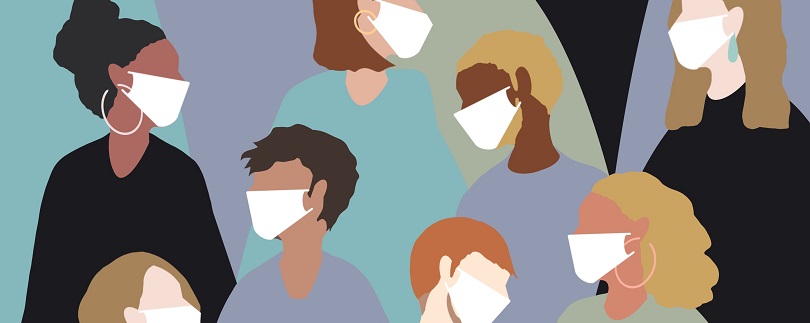Pavilion Publishing and Media Ltd
Blue Sky Offices Shoreham, 25 Cecil Pashley Way, Shoreham-by-Sea, West Sussex, BN43 5FF, UNITED KINGDOM
COVID-19 current figures
Current UK cases: 8,077 are confirmed as positive
Numbers tested: 90,436 people have been tested in the UK
422 patients in the UK who tested positive for coronavirus (COVID-19) have died.
(Source: DHSC)
Global situation report: 372,757 confirmed (39 827), 16,231 deaths (1722)
Western Pacific Region: 96,580 confirmed (943), 3,502 deaths (29)
European Region: 195,511 confirmed (24,087), 10,189 deaths (1,447)
South-East Asia: 1,990 confirmed (214), 65 deaths (7)
Eastern Mediterranean Region: 27,215 confirmed (1,840), 1,877 deaths (136)
Regions of the Americas: 49,444 confirmed (12,428), 565 deaths (100)
African Region: 1305 confirmed (315) 26 deaths (3)
(Source: World Health Organization)
Latest COVID-19 clinical news updates
Care home guidance from the BGS
The British Geriatrics Society has published guidance to help care home staff and the healthcare professionals who work with them to support residents through the COVID-19 pandemic.
The pandemic is expected to add to the strain on care home staff who were already working under challenging circumstances and feel isolated and exposed. Most are not nurses and will not be trained in managing outbreaks of infectious diseases.
The guidance is also for NHS staff who plan for, work with and support care home staff, many of whom are trying to develop standardised approaches to care home residents in light of the pandemic.
New hospital to provide thousands of extra beds
A new hospital will open in London to provide support for thousands more patients with coronavirus with capacity potentially for several thousand beds, should it be required.
The NHS Nightingale Hospital, London, will be ready for use from next week. The hospital, based at the ExCeL conference centre in East London, will initially provide up to 500 beds equipped with ventilators and oxygen.
NHS chief executive Sir Simon Stevens said: €œUnder these exceptionally challenging circumstances the NHS is taking extraordinary steps to fight coronavirus. That’s why NHS clinicians and managers are working with military planners and engineers to create, equip, staff and open the NHS Nightingale London, and we’re very grateful for their support.
€œThis will be a model of care never needed or seen before in this country, but our specialist doctors are in touch with their counterparts internationally who are also opening facilities like this, in response to the shared global pandemic.”
Study shows prone position in ICU better for lungs
In a new study of patients with severe COVID-19 hospitalised on ventilators, researchers found that lying face down was better for the lungs.
The research letter was published online in the American Thoracic Society’s American Journal of Respiratory and Critical Care Medicine. The authors reported on a retrospective study of the treatment of 12 patients in Wuhan Jinyintan Hospital, China, with severe COVID-19 infection-related acute respiratory distress syndrome (ARDS) who were assisted by mechanical ventilation.
A majority of patients admitted to the ICU with confirmed COVID-19 developed ARDS. The observational study took place during a six-day period the week of Feb. 18, 2020.
“This study is the first description of the behavior of the lungs in patients with severe COVID-19 requiring mechanical ventilation and receiving positive pressure,” said Dr Qiu, professor, Department of Critical Care Medicine, Zhangda Hospital, School of Medicine, Southeast University, Nanjing, China.
National UK programme of community health workers
A large-scale emergency programme to train community health workers (CHWs) to support older and vulnerable people in their homes during the COVID-19, has been proposed in a comment article in the Lancet.
The authors say that experience from Brazil, Pakistan, Ethiopia, and other nations shows how a coordinated community workforce can provide effective health and social care support at scale.
The authors suggest that CHWs would be young people, aged 18€“30 years, in whom the likelihood of serious consequences from COVID-19 is currently deemed low. Large-scale unemployment as a consequence of the economic impact of this pandemic makes this a group potentially in need of employment opportunities.
CHWs could undertake regular review of vulnerable people at home in person or virtually, depending on need, and when patients become ill CHWs could undertake simple assessment of the need for more advanced care, reporting to other members of the primary care team, including to the COVID-19 Health Management Team that is being commissioned.
Importance of geriatric research at a distance
€œAction at a distance€ may be the new norm for geriatric research in the context of the COVID€19 pandemic to minimise face€to€face contact with vulnerable populations.
The review published in the Journal of the American Geriatrics Society says that clinical researchers still have an obligation to study older participants during the pandemic so they have to persist and adapt.
One way of doing this is by implementing technology to minimise face€to€face contact with participants by utilising digital tools, such as shifting to electronic informed consent, emailed surveys or telehealth assessments.
Other news round up
- Prince Charles tests positive for COVID-19
- Government launches Coronavirus Information Service on WhatsApp
- 250,000 people sign up in a day to volunteer to help the vulnerable
- Scotland announces 22 new deaths
- The death toll in Spain overtakes China by 738 to 3,434
- Belgium announces that 56 deaths
- UK parliament to close today




Comments are closed.